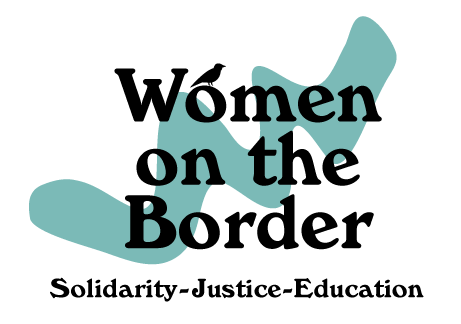Judith Rosenberg, WOB Co-founder, 1943-2015

Judy’s Reports from Her Travels to the Border
On March 8, 2015, International Women’s Day, Judy Rosenberg, a co-founder of Women on the Border, ended her struggle with lung cancer. Her spirit and insights helped not only create Women on the Border, but also helped launch the community organization Austin Tan Cerca de la Frontera, which produces border delegations to meet and learn about life under NAFTA from maquiladora workers actively involved in efforts for justice and reform in the workplace.
Judy’s early travels to the border to meet the women of the Comité Fronterizo de Obrer@s produced writings with powerful insights about how NAFTA and the emerging corporate-driven global economy were affecting maquiladora workers.
Judy so admired the courage, commitment to justice, and humble approach of the activists to surviving their lives of hard work and stress, that she made their stories the focus of her dissertation, Can the Maquiladora Worker Speak?
The Mexican workers pronounced her name “hoodeet.” Soon Judy began to write her name as Judith (Hoodeet) Rosenberg, honoring that bit of intimacy in her contacts with the women of the Comité Fronterizo de Ober@s. Judy’s dissertation combines theory about globalization with heartfelt narrative. In it readers will hear the voices of Mexican working class women speak about the realities of their lives under NAFTA. Their stories capture the skilled ways in which they found ways to invoke the constitution-based labor law, La Ley Federal del Trabajo against big corporate employers to protect them against sexual harassment, wage theft, toxicity in time-pressured working conditions and brutal disciplinary tactics delivered by supervisors in the maquiladoras.
In her own words, Judy sought to foreground and feature another voice, a counter-argument or balance to the official theorizers of globalization. That voice she argued, belongs to the maquiladora worker. Judy earned her doctorate in Rhetoric from the University of Texas at Austin in 2006.
Judy Rosenberg left us in body, but her spirit and legacy for both Women on the Border and Austin Tan Cerca de la Frontera remains in the indomitable passion she possessed for justice and defense of the human right to dignity for all.
